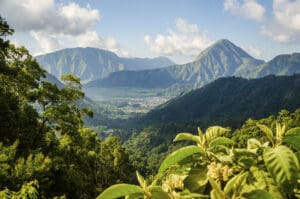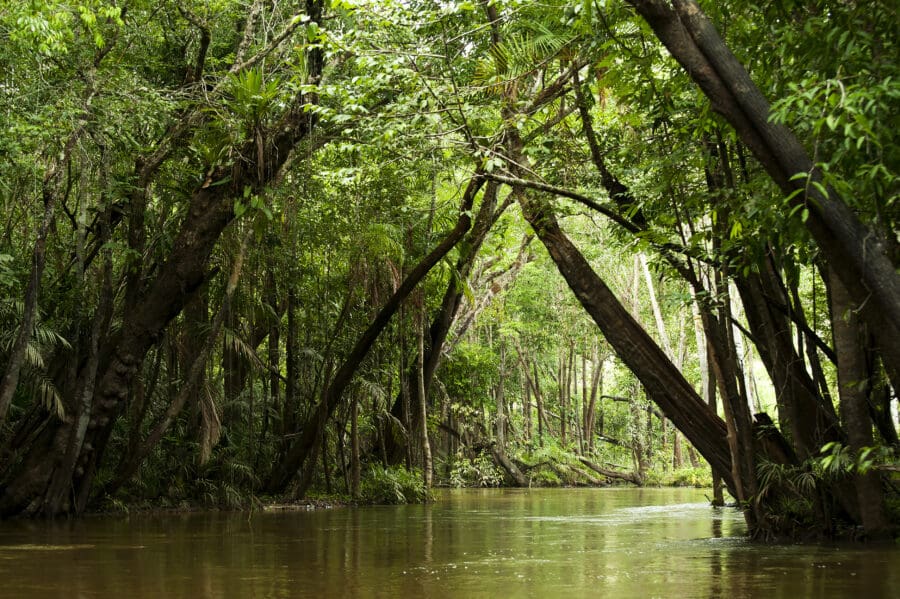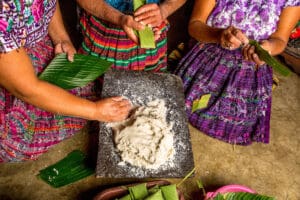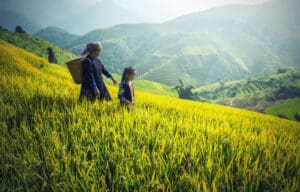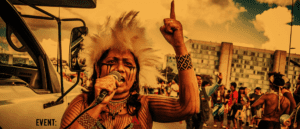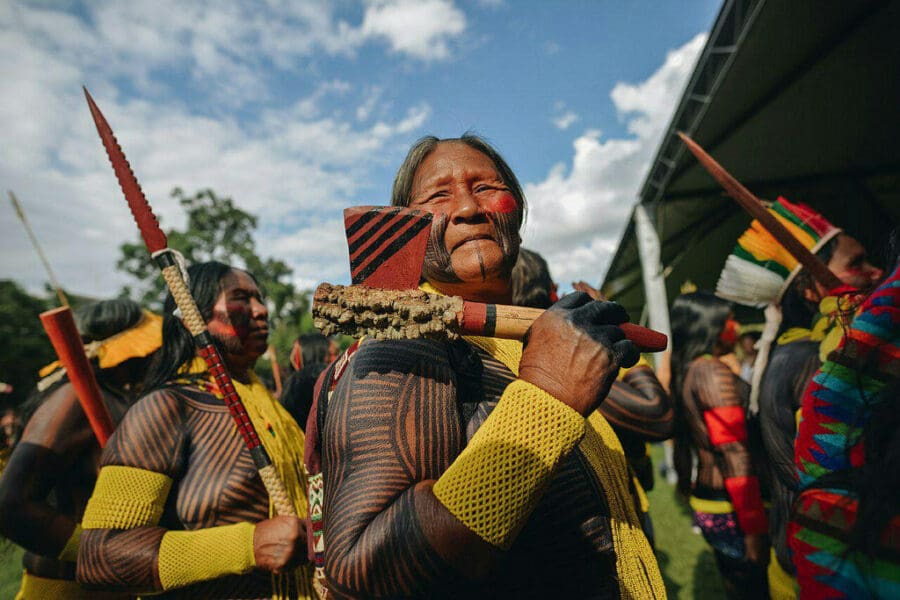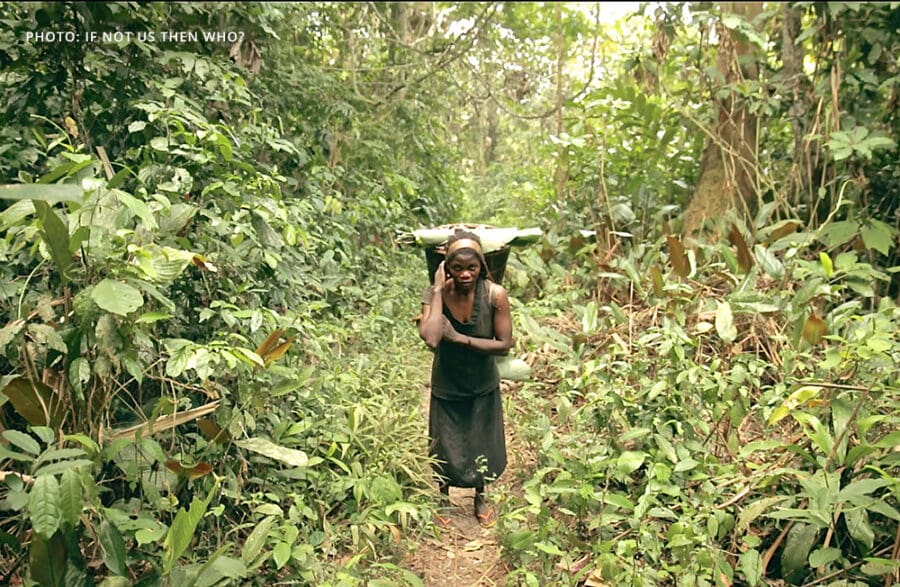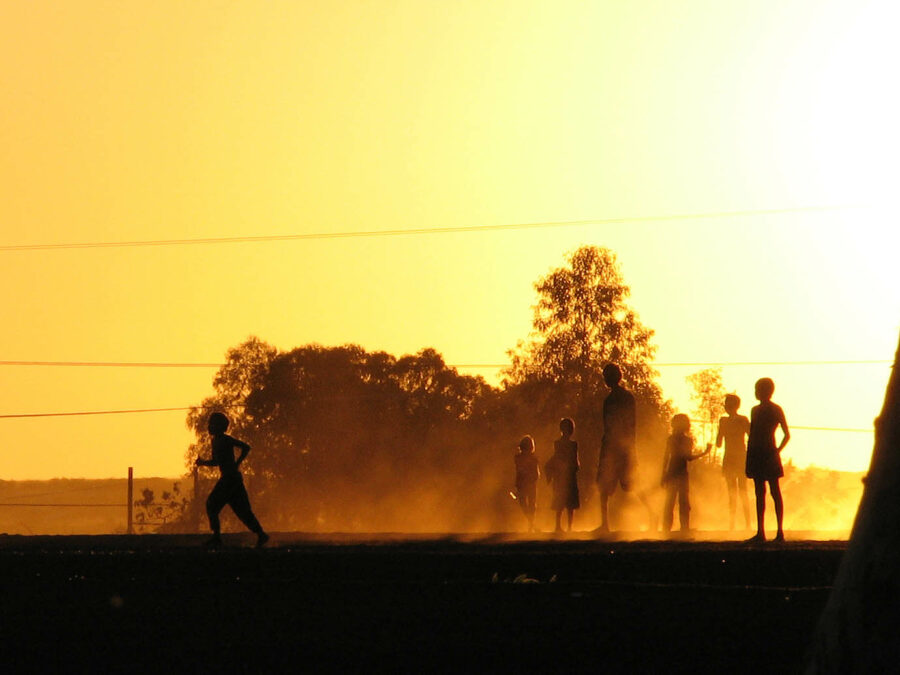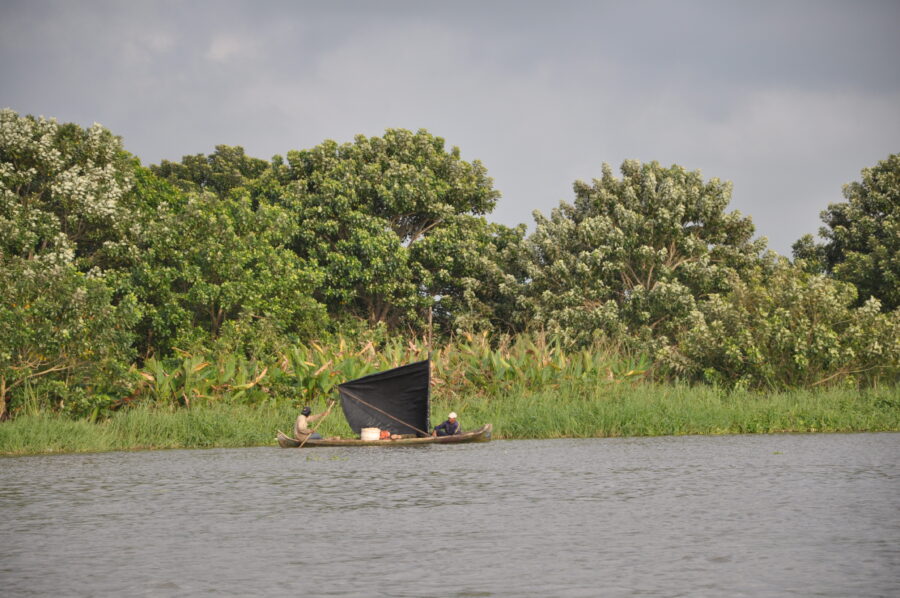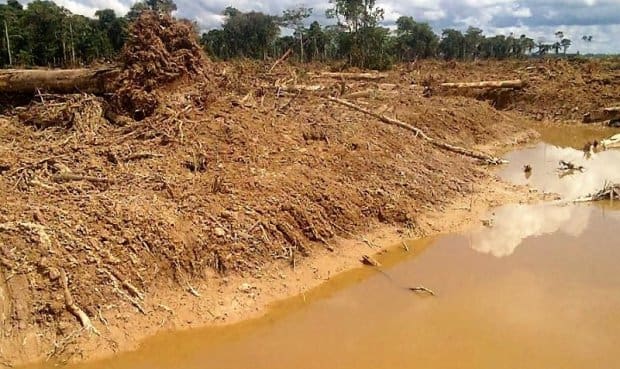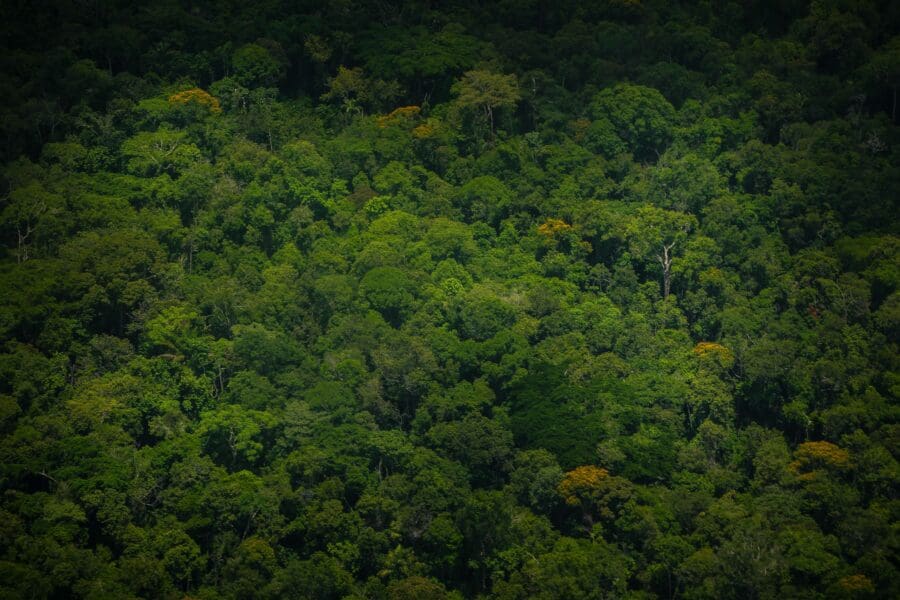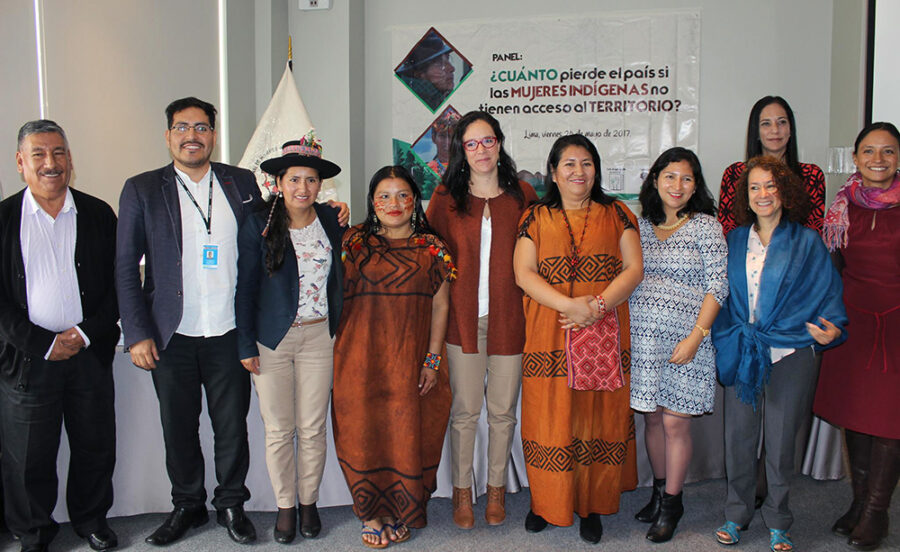A new report by the Forest Carbon Partnership Facility (FCPF), a global partnership for successfully reducing emissions from deforestation and forest degradation, and the World Bank’s fund for Enhancing Access to Benefits while Lowering Emissions (EnABLE), outlines tangible ways global communities can make inroads in the effort to mitigate climate change through strengthening Indigenous sovereignty.
At UNFCCC COP 26, new research shows Indigenous Peoples and local communities hold at least 958 million hectares of land in countries spanning most of the world’s endangered tropical forests – yet have legal rights to less than half of their lands. Community-held lands sequester over 250 billion metric tonnes of carbon, and lack of secure rights threatens to release much of this carbon into the atmosphere through deforestation.
Secure rights to land are fundamental to enable Indigenous Peoples, and in particular, Indigenous women, to continue their effective stewardship of forests.
Blood in the jungle, we demand justice.
Não há empoderamento político sem empoderamento econômico. Esse foi o princípio por trás de uma estratégia de 2019 da Coalizão da América Latina da RRI [Iniciativa de Direitos e Recursos] para analisar sistemas econômicos com base nos próprios conceitos de desenvolvimento das comunidades dentro de seus sistemas de propriedade comum.
There is no political empowerment without economic empowerment. That was the principle behind a 2019 strategy by RRI’s Latin America coalition to analyze economic systems based on communities' own concepts of development within their collective tenure systems.
The Amazon’s peoples and representative organizations, threatened by the ongoing pandemic, are calling upon supporters across the world to join their fight to protect the Amazonian territories from this crisis. The virtual gathering, "The Jungle Screams: Voices of the Amazon," will analyze and build proposals to fight Covid-19, climate change, patriarchy, gender-based violence, and political systems that hijack democracy. This event is open to participation.
A new study from RRI documents the multidimensional impacts and multiplier effects of collective rights violations by extractive industries and infrastructure development in Latin America. The study tracks 102 cases involving Indigenous Peoples, Afro-descendants, and local communities.
Regional community representatives call on the UN and governments to give local communities due recognition by defining who they are.
Indigenous people in Ecuador say their territorial rights are being systematically violated, according to a top United Nations official. Victoria Tauli-Corpuz, the U.N.’s special rapporteur on the rights of indigenous peoples, is urging the Ecuadoran government to form a “truly plurinational and multicultural society” in accordance with its constitution and international law.
On the 70th anniversary of the Universal Declaration on Human Rights, RRI’s Latin America Program Director reflects on the human rights challenges facing indigenous, Afro-descendant, and peasant communities—and how they and their allies are joining forces to take on these challenges together.
A recent Rights and Resources report provides strong evidence on the importance of recognizing and protecting indigenous rights towards mitigating forest-based emissions and curbing global warming. As a Ph.D. student coordinating the third round of data collection of CIFOR’s Global Comparative Study on REDD+ in Ucayali, Peru, I was pleased to find an on the ground example of why this is important and how tenure security can help achieve the objective of REDD+.
The world is turning its eyes toward Colombia as the new president, Iván Duque, takes office. Rights groups and peace activists are calling on the government to ensure that both the peace process and the country’s social leaders are protected.
Se firmaron dos convenios, uno entre el PCN y la Agencia Nacional de Tierras, y el otro entre el PCN y el Fondo de Tenencia…
The 15th Free Land Camp (Terra Livre, or ATL for its Portuguese acronym) brought 3,000 Indigenous Peoples and their allies together from all regions of the country at a massive encampment in Brasilia to call for justice for indigenous communities. Participants used the gathering—one of the largest ever—to create and present a unified political agenda before the Brazilian government.
A new analysis of the Democratic Republic of Congo’s Mai-Ndombe province finds REDD+ investments in the region are moving forward without clear recognition of the land rights of Indigenous Peoples and local communities. The findings come at a crucial time, as a decision on future investment by the World Bank’s Forest Carbon Partnership Facility is imminent.
We asked six experts about the biggest opportunities, moments, and potential catalysts for change they see for community land rights in 2018. Here’s what they had to say.
New data gathered from Afro-descendant community councils and state records reveal that the Colombian government has failed to address 271 claims for collective Afro-descendant land rights—threatening cultural and environmental sustainability, the rights of Afro-descendant community territories as established by Law 70 of 1993, and the successful implementation of the peace accords. Although all 271 communities have submitted formal applications for collective land titles, the government has largely delayed recognition of their claims—in some cases for over a decade.
The community of Santa Clara de Uchunya, in Ucayali, Peru, is fighting back against both land trafficking and human rights abuses in the region.
Millions have learned of the existence of the small island of Barbuda (161 sq. km), through the havoc that Hurricane Irma wreaked on the island, destroying most buildings, roads, water, and power installations. What they may not know is that the less than 2,000 Barbudans collectively own their island; this ownership is under threat, which has been heightened by Hurricane Irma.
“Include us, so that we can protect our lands for our children and protect the planet’s biodiversity for all the world’s children,” said by Victoria Tauli-Corpuz, UN Special Rapporteur on the Rights of Indigenous Peoples during the launch. Recognising the land rights of native and traditional peoples is a low-cost solution toward achieving the world’s development, environment and climate agendas.
In Brazil, indigenous and Afro-descendant communities face unprecedented threats to their hard-won territorial and constitutional rights.
At a panel event in Lima, Peru, indigenous women advocated for stronger legal protections for indigenous women’s rights to govern their lands and resources.
In Peru, women are raising their voices to call attention to their unique role as forest managers, and advocate for full participation in land titling projects that would affect them.

